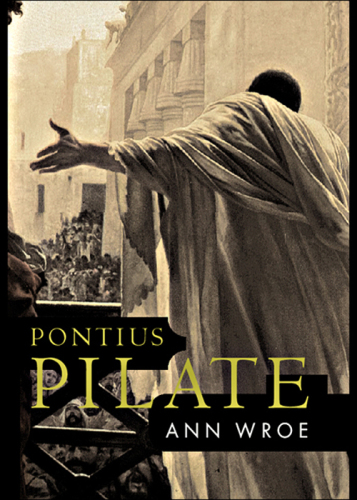
Pontius Pilate
کتاب های مرتبط
- اطلاعات
- نقد و بررسی
- دیدگاه کاربران
نقد و بررسی

April 3, 2000
Wroe takes current trends in the genre of biography one step further in this eloquent yet frustrating book, offering a reconstructed life of the Roman official who, by ordering the execution of Jesus of Nazareth but otherwise serving with little distinction, managed to become simultaneously famous and obscure. Outside the Gospels, which each bring the governor on stage for a brief if highly charged cameo appearance, there are only a few references to Pilate in contemporary sources. Where other biographers would see a historical desert, Wroe sees the tantalizing mirages that have sprung up over the centuries, from the fourth-century Acta Pilati to medieval mystery plays. She weaves these nonhistorical speculations together with well-researched accounts of first-century Roman lives, producing a shifting but suggestive portrait of an ultimately very human functionary. The writing is both precise and rich (as one might expect from the American editor of the Economist), and the insights into human character ring consistently true, but Wroe's bibliography is alarmingly scant when it comes to historical research on Jesus (who, after all, presents similar problems to biographers). And unlike Jaroslav Pelikan in his masterful Jesus Through the Centuries, Wroe often forfeits the opportunity to show how Pilate's reimagining served changing historical situations, juxtaposing quotes from mystery plays and letters from Cicero with deliberate abandon. "What did he look like? However men imagine him," Wroe writes. Readers who know the satisfactions of more conventional history will find such equivocations disappointing, but those who take Wroe's project on its own terms will find much to ponder.

February 1, 2000
Outside the meager information in the Gospels, we know almost nothing about Pontius Pilate. Bits of information from Philo, Josephus, and Tacitus and an inscription discovered in 1961 provide the barest historical information. In a most effective and engaging manner, Wroe (American editor of The Economist) uses a knowledge of ancient history and a variety of fictional material, including works that are more theology than biography, and weaves her sources into a seamless account, bringing the reader into the "mind" of Pilate. Beginning with his "ancestors," Wroe shows us the intellectual and social forces she believes formed Pilate. By the time she gets to his crisis over Jesus, we are prepared to understand the fuller meaning of his actions and their potential impact on him and his career. Presentation of details, such as what Pilate might have done after sentencing Jesus to death--relax in the Roman answer to a sauna--makes for fascinating reading. As long as readers don't take this as accurate history but enjoy it for as a well-written, imaginative, and creative portrait of Pilate and his times, the book serves a useful purpose. The selected bibliography will be useful for further research. Recommended for all libraries.--David Bourquin, California State Univ., San Bernardino
Copyright 2000 Library Journal, LLC Used with permission.

February 15, 2000
Who was Pilate? Was he the sympathetic governor of Judea who succumbed to the pressure of the Jewish mob to condemn Christ? Was he the brutal and rapacious governor whose ever increasing demand for tax revenues drove Judeans to revolt? Wroe is the American editor of "The Economist." To her credit, she asserts that given the paucity of historical sources, it is impossible to unearth the "real" Pilate. Instead, she offers a fascinating speculative account of Pilate's life, based on the scanty available sources as well as her superb knowledge of Roman society in the late republic and early empire. She traces Pilate's likely family background to the Samnite Equestrians. Her suggestions regarding his military career, administrative skills, and personality traits, though unprovable, are at least credible and consistently interesting. A sound knowledge of classical civilization will be useful, but even general readers can enjoy this outstanding effort of historical reconstruction. ((Reviewed February 15, 2000))(Reprinted with permission of Booklist, copyright 2000, American Library Association.)

























دیدگاه کاربران